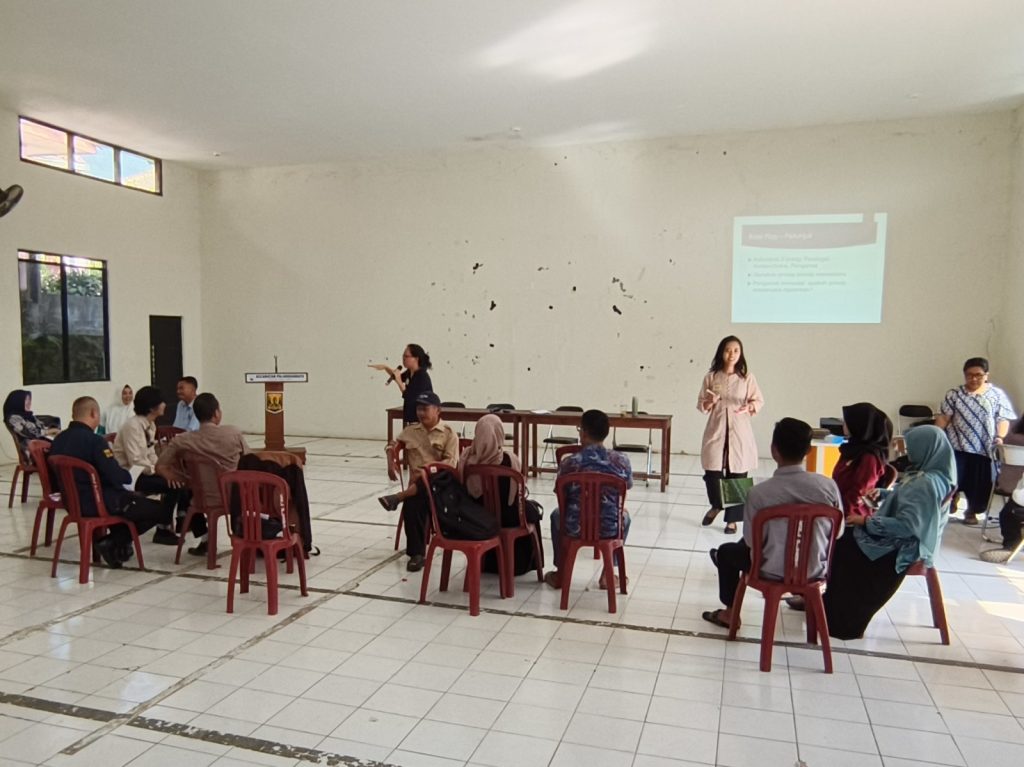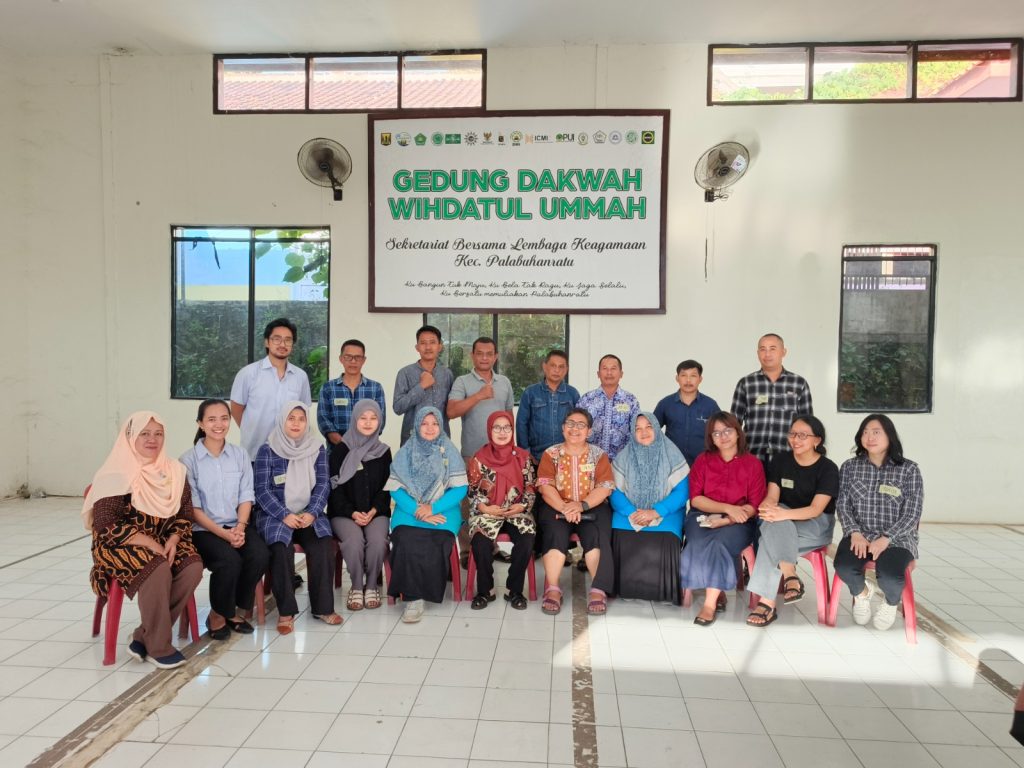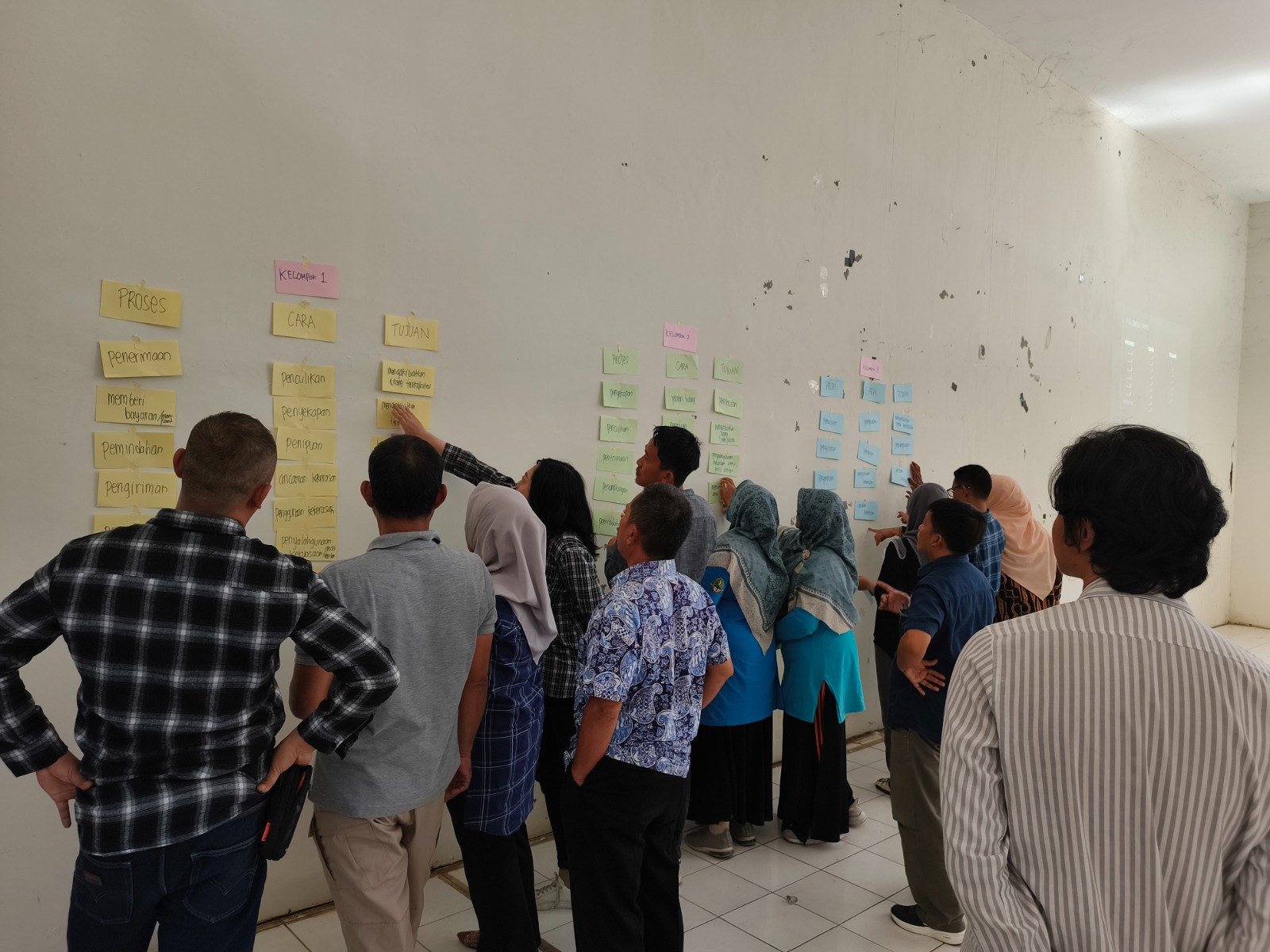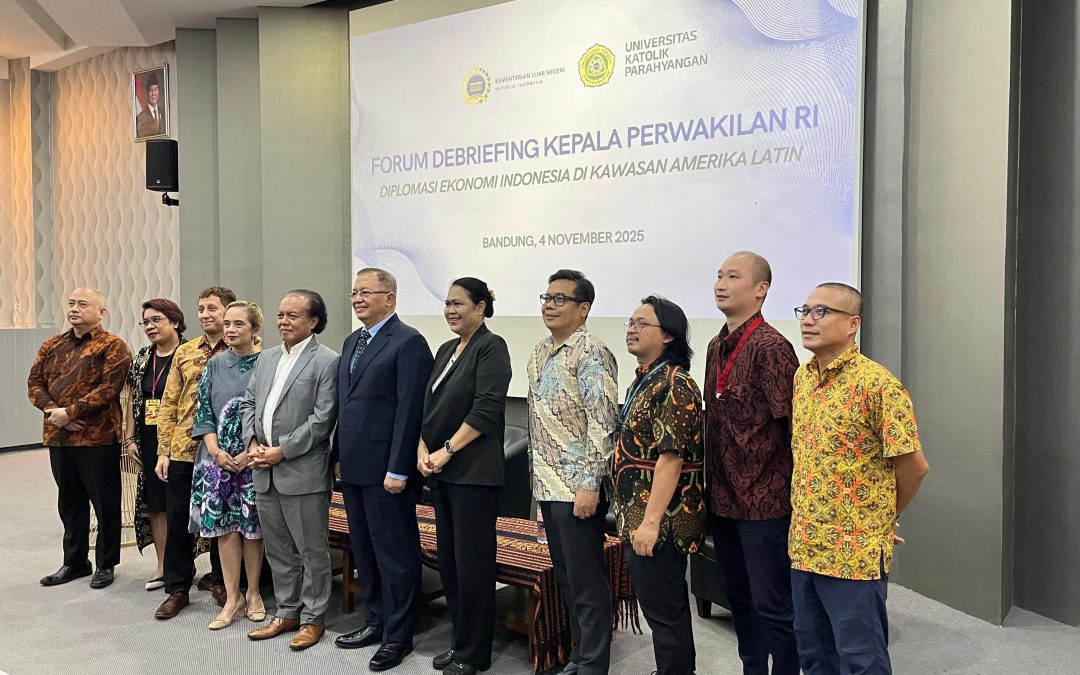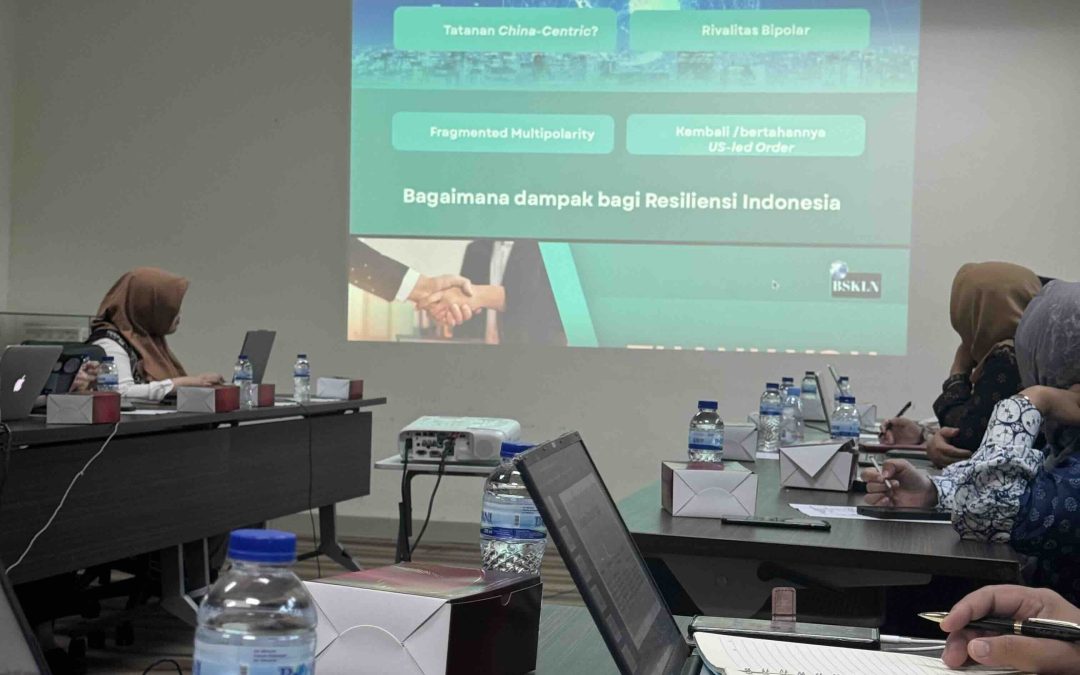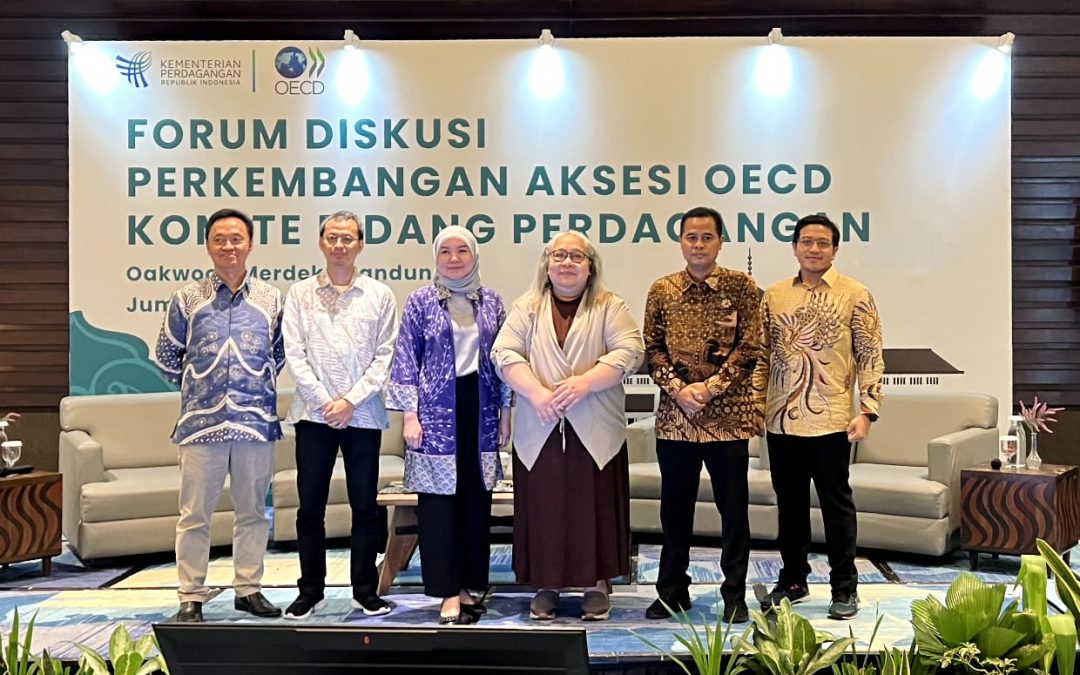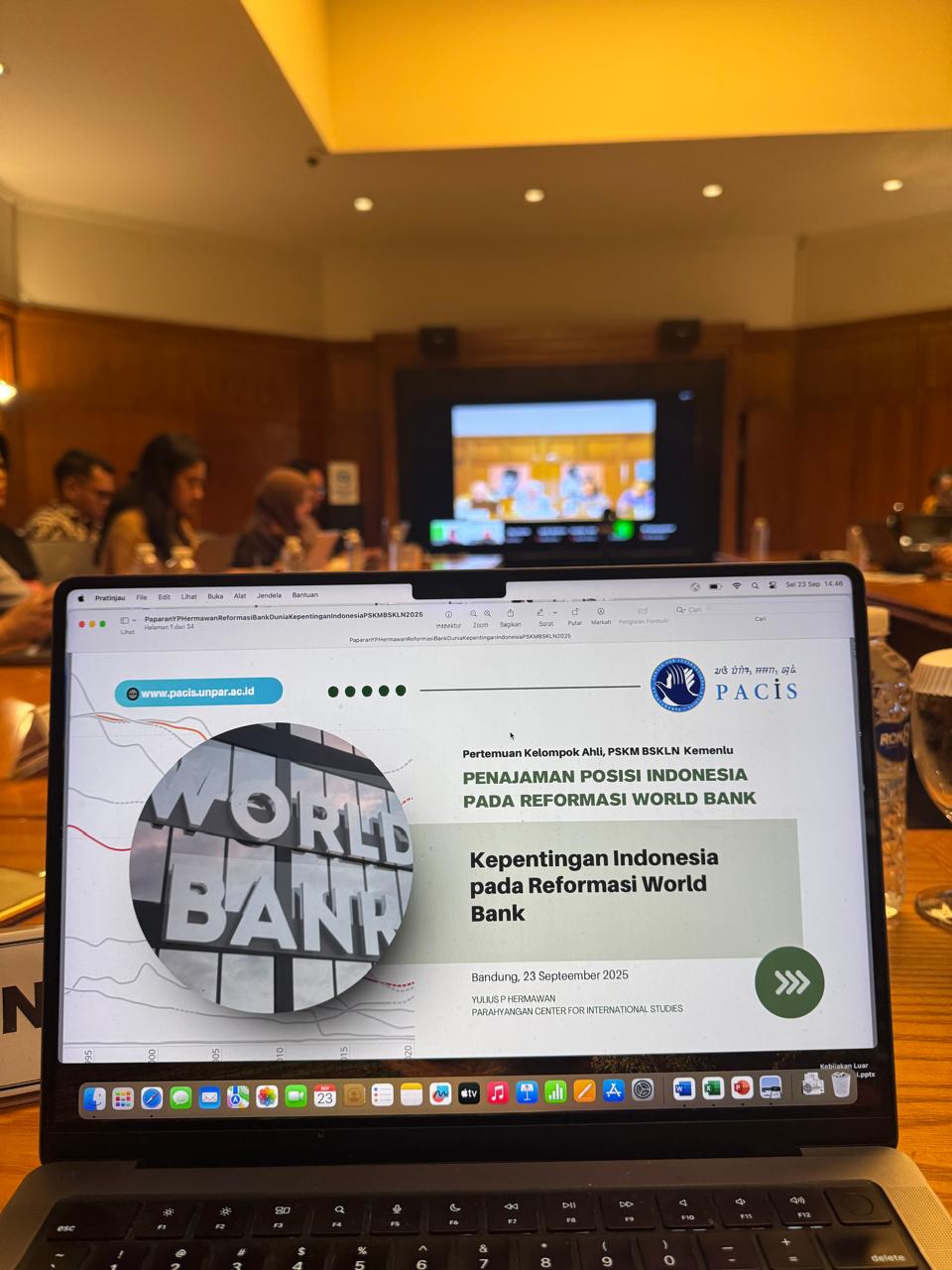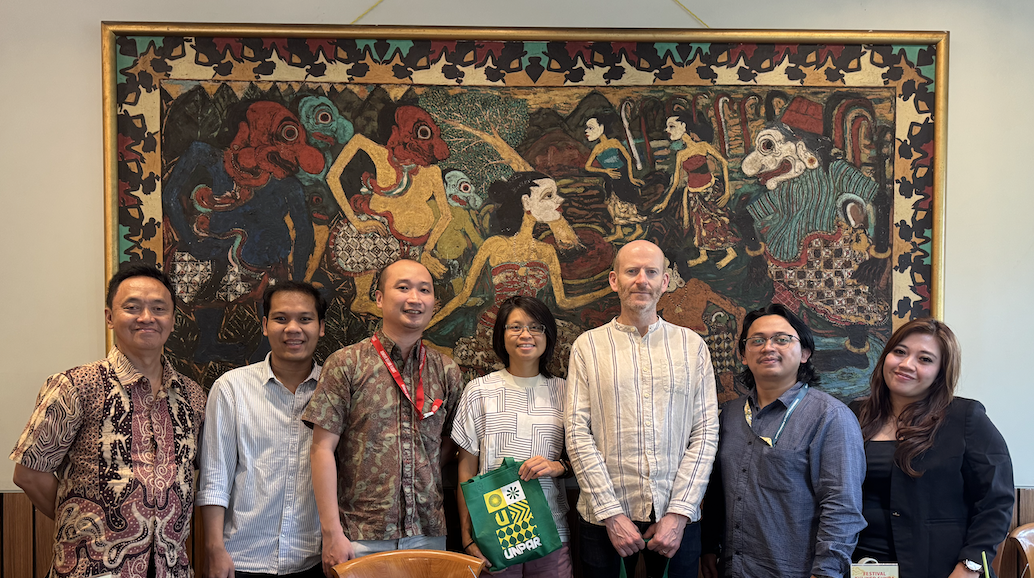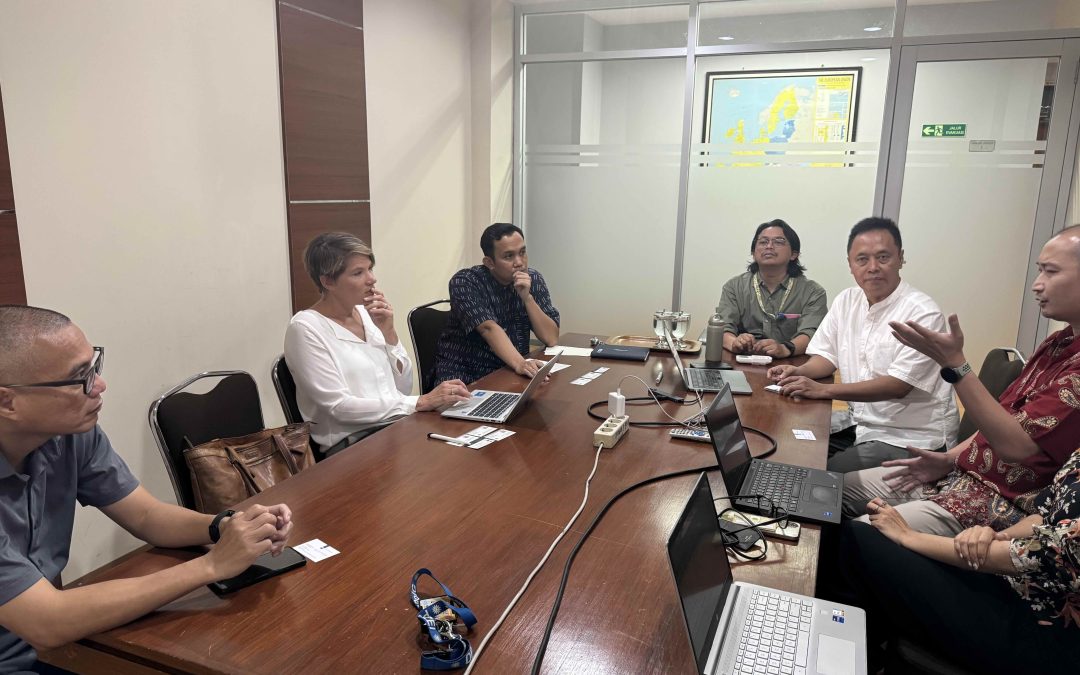According to data from the Indonesian National Police, in 2023, there were 1,062 cases of non-procedural Indonesian migrant workers (PMI) who became victims of human trafficking (TPPO). The number of cases indicates an increasing trend compared to previous years, particularly due to the widespread use of social media and the limited job opportunities following the COVID-19 pandemic.
To prevent and address TPPO cases, a multidisciplinary approach and collective efforts involving various stakeholders are necessary, including local and national governments, NGOs, international organizations, and academics. The discussion of TPPO cases involving non-procedural PMI abroad is also one of the issues studied in non-traditional security in International Relations.
The Community Service Team (Abdimas), consisting of lecturers and students from the International Relations Program (PSHI) and the Faculty of Law (FH) at Parahyangan Catholic University (UNPAR), conducted a paralegal training titled “Paralegal Training for Supporting Victims of TPPO.” The training was conducted over three days, from July 18 to 20, 2025, in Palabuhanratu Subdistrict, Sukabumi Regency, with support from partners including the Indonesian Migrant Workers Union (SBMI) Sukabumi, the AKATIGA Foundation, and the International Organization for Migration (IOM) Indonesia.
According to the findings of a survey conducted during the 2024 Community Service Team outreach activities, there is a need among the community of Sukabumi Regency, particularly in Palabuhanratu District, to develop the capacity to assist in cases of human trafficking. Partners SBMI Sukabumi and IOM Indonesia also confirmed that the number of human trafficking cases in the area has been increasing annually. Therefore, this paralegal training aims to develop and enhance efforts to prevent, reduce, and assist in handling cases of non-procedural migrant workers (PMI) and TPPO among the community groups in that area.
The paralegal training was attended by 14 participants, each representing village and sub-district officials, Family Resilience Motivators (Motekar), and Gender and Child Information System Operators (Opsiga). The training materials presented by the Abdimas Team included an Introduction to Safe Overseas Employment Practices, Gender Sensitivity in Supporting TPPO Victims, Basic Interviewing and Counseling Techniques, Documentation, Data Collection Techniques, TPPO Case Identification Techniques, and Chronology Creation Exercises. All of these materials were designed to enhance community legal awareness, provide initial support, and build community-based support networks related to TPPO cases.
Hopefully, this paralegal training program can improve the community capacity to assist in handling cases of trafficking in persons involving Indonesian migrant workers in Palabuhanratu Subdistrict, Sukabumi Regency.
Authors: Dyah Ayunda & Elisabeth Dewi
Photo Gallery:
